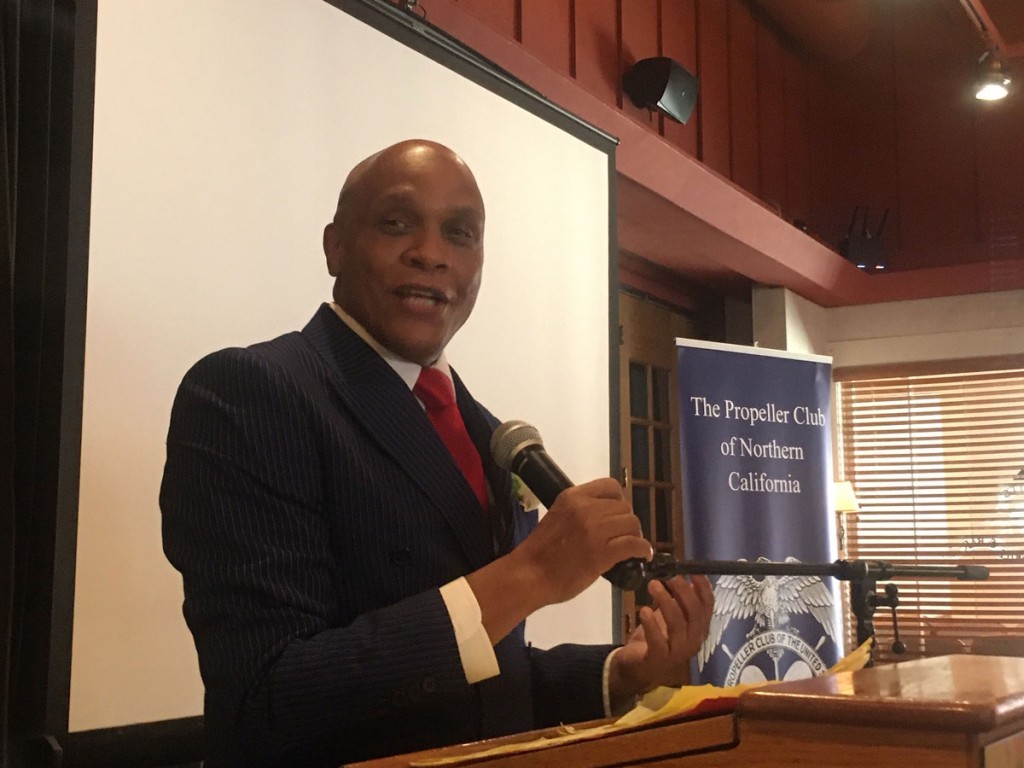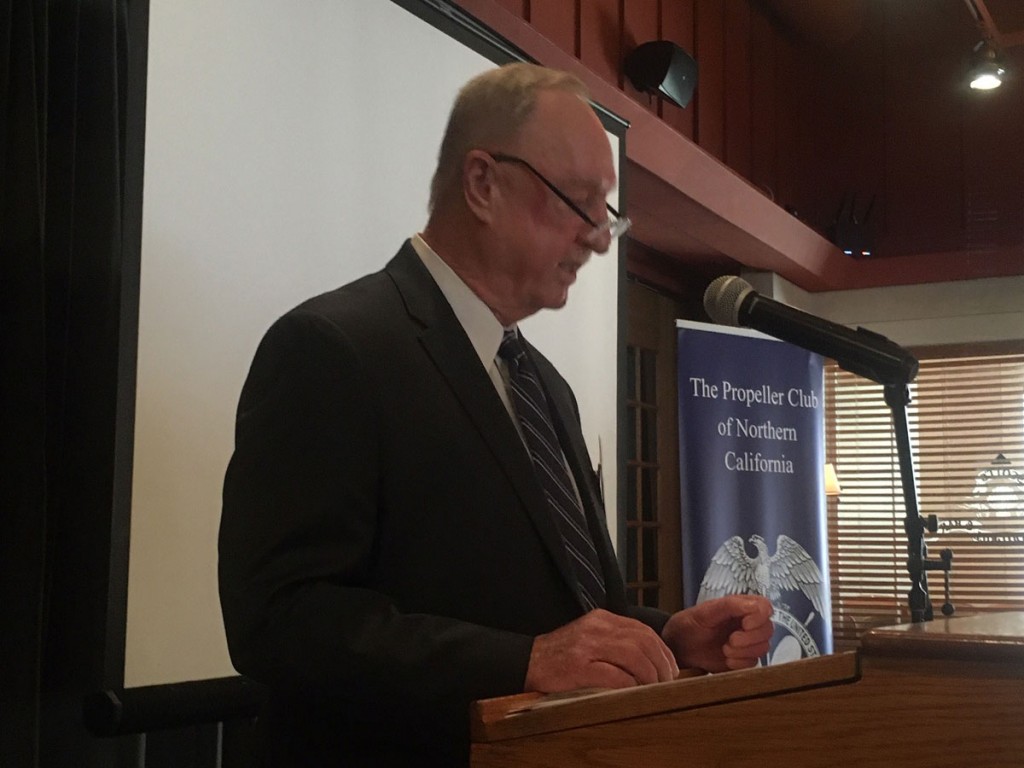In an unusual display of unity, Willie Adams, president of the International Longshore and Warehouse Union (ILWU) and Jim McKenna, president of the Pacific Maritime Association (PMA) pledged to work together to help U.S. West Coast ports regain lost market share from rival ports on the East and Gulf Coasts.
Both leaders agreed that it was vital to lobby the two West Coast rail providers, the Union Pacific and the Burlington Northern and Santa Fe, to reduce the rates they charge for transporting containers to and from the West Coast ports.

Jim McKenna agreed with Adams, but blamed West Coast ports for being complacent about the higher costs of doing business, especially in California citing: high land costs, high costs of environmental regulations and charges to reduce truck congestion and institute a clean truck program: “These charges are driving away discretionary cargoes and they’re killing us.”
McKenna also noted the expansion of the Panama Canal, the trade dispute with China and negative reactions to the 2014-2015 ILWU work slow-down had resulted in cargo losses for West Coast ports
However, both McKenna and Adams agreed that high rail costs charged by the Union Pacific (UP) and Burlington Northern and Santa Fe (BNSF) should be reduced so as to close the cost gap with East and Gulf Coast ports.
Adams said “the railroads are holding us hostage and…. we need to bring them to the party.”

McKenna agreed that a reduction in rail rates charged by the BNSF and UP could make a major contribution to West Coast competitiveness. Right now, he estimates West Coast costs are $200 per container higher than East and Gulf Coast ports. Reduced rail rates can close the gap: “The railroads are losing rail business as the West Coast ports lose discretionary cargo and so they know they can contribute to make up the difference and win back some of this cargo.”
Both leaders also pledged to oppose the Oakland A’s ballpark and condominium complex proposed at the Port of Oakland’s Howard Terminal agreeing that the move by localities to transfer maritime properties into real estate developments threatens maritime jobs and the investments necessary to keep container ports such as Oakland competitive. Adams said “our maritime industry is something we need to protect.”
Weston LaBar, CEO of the Harbor Trucking Association (HTA), representing harbor trucking companies at the Ports of Los Angeles, Long Beach and Oakland told AJOT last week that the Oakland A’s ballpark proposal would create “gridlock” at the Port of Oakland during baseball games bringing the loading and unloading of vessels “to a grinding halt.”
McKenna and Adams agreed that California and West Coast ports need to be more politically aggressive to combat the effect of the U.S. Harbor Maintenance tax funds going disproportionately to East and Gulf Coast ports who, they say, benefit more and pay less proportionately than California and other West Coast ports.
McKenna noted that Canada does not have a Harbor Maintenance tax and so the Western Canadian Port of Prince Rupert has a cost advantage transporting containers by rail to Chicago and other Midwest destinations. The result is the U.S. West Coast ports are also losing business to Prince Rupert.

